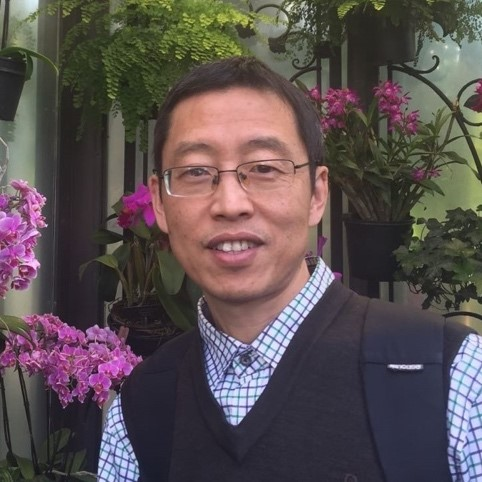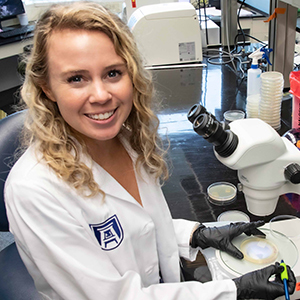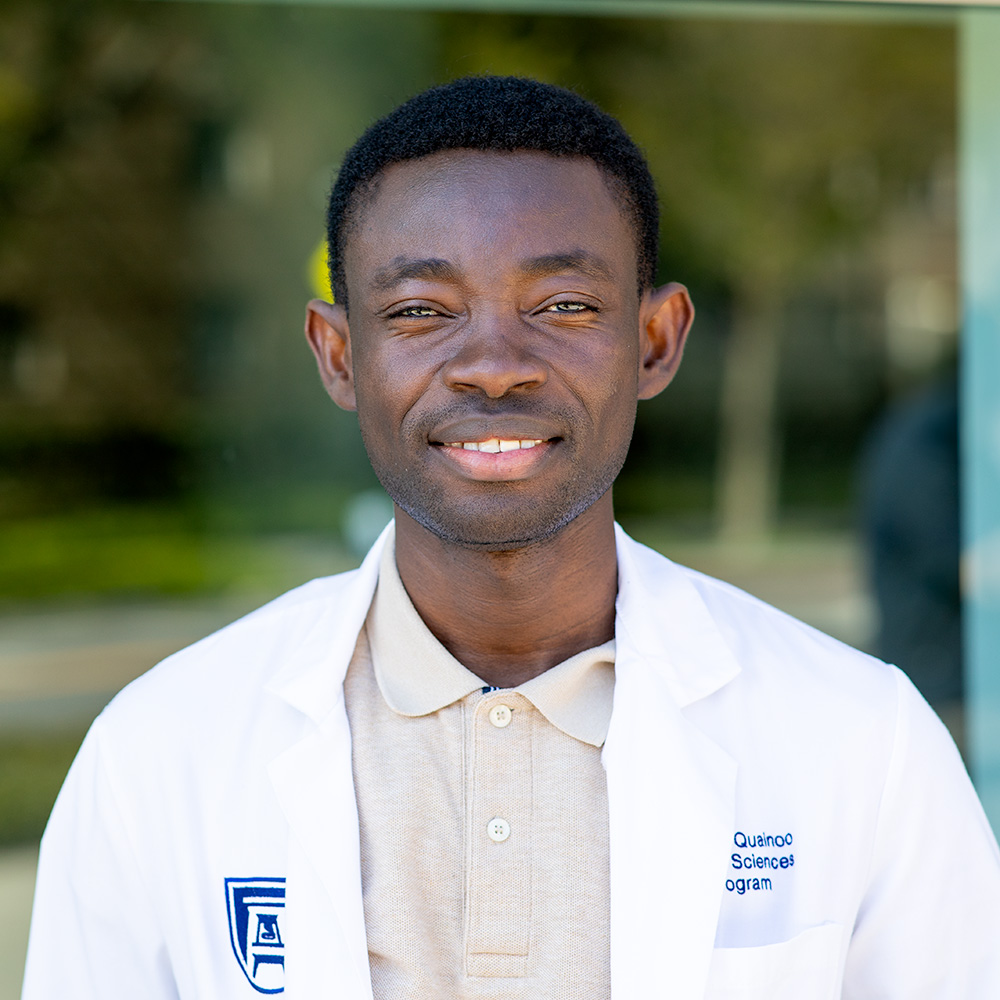From Neurological Questions
To Life-Changing Answers
- Augusta University
- The Graduate School
- Biomedical Sciences
- Neuroscience
Neuroscience
The Neuroscience PhD program at Augusta University immerses you in pioneering research on the brain and nervous system—from neurodegeneration and neuroplasticity to injury and repair. Through interdisciplinary coursework and collaborative lab experiences, you’ll work alongside leading scientists to explore the biological basis of neurological disease. Whether studying synaptic function, inflammation, or cognitive resilience, this program empowers students to explore critical scientific questions and pursue discoveries with meaningful impact. Neuroscience graduates pursue successful careers in academic neuroscience, biotech and pharma, clinical research organizations, and neuroscience-focused startups—often beginning with competitive postdoctoral fellowships.
Passionate about the brain and its mysteries? Train in the Neuroscience PhD program and lead discoveries that restore lives.
Admissions Contact
Lauren Schoem, MS
Assistant Director, Graduate School Admissions
(706) 721-9516
BIOMED@augusta.edu
Program Director

"We’re living in an extraordinary era of breakthroughs in neuroscience. Armed with cutting-edge technologies, researchers are closer than ever to unraveling—and potentially curing—a range of debilitating neurological disorders: Alzheimer’s, Parkinson’s, ALS, stroke, brain, and spinal cord injuries, and more. If you're a driven individual eager to shape the future of neuroscience, we invite you to begin your journey in the Neuroscience Graduate Program at AU. Join us—and start here."
Program Contacts
Hedong Li, PhD
Program Director
hedli@augusta.edu
Eula Tatman
Neuroscience Program Coordinator
(706) 721- 1811
etatman@augusta.edu
Student Testimonials

"The faculty and student interactions are all so enjoyable. We are able to be comfortable and confident in a professional setting while still being able to make mistakes, ask questions, have fun, learn, and grow as scientists."
- Julie Vincent

"My research focuses on gene regulatory networks that are involved in the development of retinal neurons. This unique area of study intersects genetics and neuroscience, enabling me to use modern genetic tools to investigate neuronal development in the retina."
- Ebenezer Quainoo
The Graduate School
The Graduate School at Augusta University facilitates ground-breaking research and ensures outstanding education. We create an environment that embraces and empowers the next generation of scholars and investigators, supports faculty and staff, and fosters meaningful relationships and collaborations among students across our programs and colleges.
Explore More